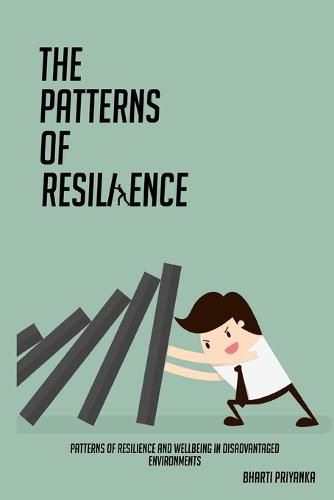Readings Newsletter
Become a Readings Member to make your shopping experience even easier.
Sign in or sign up for free!
You’re not far away from qualifying for FREE standard shipping within Australia
You’ve qualified for FREE standard shipping within Australia
The cart is loading…






This title is printed to order. This book may have been self-published. If so, we cannot guarantee the quality of the content. In the main most books will have gone through the editing process however some may not. We therefore suggest that you be aware of this before ordering this book. If in doubt check either the author or publisher’s details as we are unable to accept any returns unless they are faulty. Please contact us if you have any questions.
In general terms, resilience is described as the ability to bounce back from some form of disruption, stress, or change. "Resilience" should be defined to gain a clear understanding of the concept. The term comes from the Latin "resilire," which means "to recoil." Thus, resilience means to rebound, spring back, and have elasticity, flexibility, or recuperability. Also, the Oxford English Dictionary (n. d.) offers two meanings: (a) Able to recoil or spring back into shape after bending, stretching, or being compressed (said of material objects); or (b) Able to withstand or recover quickly from difficult conditions (said of a person). Noble and McGrath (2005) defend resilience an ability to bounce bank after encountering difficulties, negative events, hard times or adversity and to be able to return to the original level of emotional well-being. Resilience has been conceptualized a multidimensional construct comprising personal skills and qualities together with social environments and a supportive family network ( Siriwardhana, Ali, Roberts, & Stewart, 2014). Resilience is the process of adapting well in the face of adversity, trauma, tragedy, threats or significant sources of stress - such as family and relationship problems, serious health problems or workplace and financial stressors. It means "bouncing back" from difficult experiences.
$9.00 standard shipping within Australia
FREE standard shipping within Australia for orders over $100.00
Express & International shipping calculated at checkout
This title is printed to order. This book may have been self-published. If so, we cannot guarantee the quality of the content. In the main most books will have gone through the editing process however some may not. We therefore suggest that you be aware of this before ordering this book. If in doubt check either the author or publisher’s details as we are unable to accept any returns unless they are faulty. Please contact us if you have any questions.
In general terms, resilience is described as the ability to bounce back from some form of disruption, stress, or change. "Resilience" should be defined to gain a clear understanding of the concept. The term comes from the Latin "resilire," which means "to recoil." Thus, resilience means to rebound, spring back, and have elasticity, flexibility, or recuperability. Also, the Oxford English Dictionary (n. d.) offers two meanings: (a) Able to recoil or spring back into shape after bending, stretching, or being compressed (said of material objects); or (b) Able to withstand or recover quickly from difficult conditions (said of a person). Noble and McGrath (2005) defend resilience an ability to bounce bank after encountering difficulties, negative events, hard times or adversity and to be able to return to the original level of emotional well-being. Resilience has been conceptualized a multidimensional construct comprising personal skills and qualities together with social environments and a supportive family network ( Siriwardhana, Ali, Roberts, & Stewart, 2014). Resilience is the process of adapting well in the face of adversity, trauma, tragedy, threats or significant sources of stress - such as family and relationship problems, serious health problems or workplace and financial stressors. It means "bouncing back" from difficult experiences.